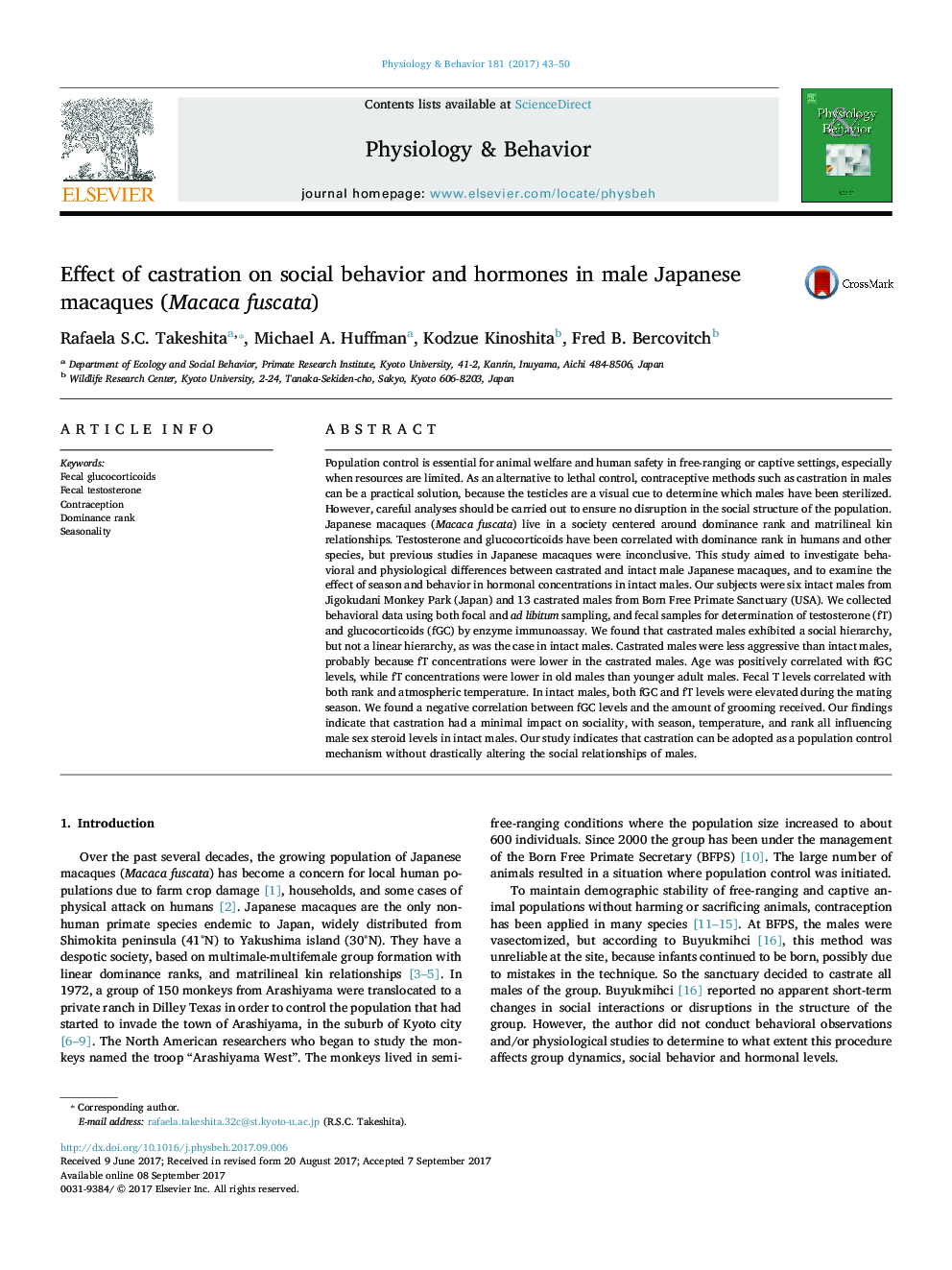| کد مقاله | کد نشریه | سال انتشار | مقاله انگلیسی | نسخه تمام متن |
|---|---|---|---|---|
| 5593575 | 1571138 | 2017 | 8 صفحه PDF | دانلود رایگان |
عنوان انگلیسی مقاله ISI
Effect of castration on social behavior and hormones in male Japanese macaques (Macaca fuscata)
دانلود مقاله + سفارش ترجمه
دانلود مقاله ISI انگلیسی
رایگان برای ایرانیان
کلمات کلیدی
موضوعات مرتبط
علوم زیستی و بیوفناوری
بیوشیمی، ژنتیک و زیست شناسی مولکولی
فیزیولوژی
پیش نمایش صفحه اول مقاله

چکیده انگلیسی
Population control is essential for animal welfare and human safety in free-ranging or captive settings, especially when resources are limited. As an alternative to lethal control, contraceptive methods such as castration in males can be a practical solution, because the testicles are a visual cue to determine which males have been sterilized. However, careful analyses should be carried out to ensure no disruption in the social structure of the population. Japanese macaques (Macaca fuscata) live in a society centered around dominance rank and matrilineal kin relationships. Testosterone and glucocorticoids have been correlated with dominance rank in humans and other species, but previous studies in Japanese macaques were inconclusive. This study aimed to investigate behavioral and physiological differences between castrated and intact male Japanese macaques, and to examine the effect of season and behavior in hormonal concentrations in intact males. Our subjects were six intact males from Jigokudani Monkey Park (Japan) and 13 castrated males from Born Free Primate Sanctuary (USA). We collected behavioral data using both focal and ad libitum sampling, and fecal samples for determination of testosterone (fT) and glucocorticoids (fGC) by enzyme immunoassay. We found that castrated males exhibited a social hierarchy, but not a linear hierarchy, as was the case in intact males. Castrated males were less aggressive than intact males, probably because fT concentrations were lower in the castrated males. Age was positively correlated with fGC levels, while fT concentrations were lower in old males than younger adult males. Fecal T levels correlated with both rank and atmospheric temperature. In intact males, both fGC and fT levels were elevated during the mating season. We found a negative correlation between fGC levels and the amount of grooming received. Our findings indicate that castration had a minimal impact on sociality, with season, temperature, and rank all influencing male sex steroid levels in intact males. Our study indicates that castration can be adopted as a population control mechanism without drastically altering the social relationships of males.
ناشر
Database: Elsevier - ScienceDirect (ساینس دایرکت)
Journal: Physiology & Behavior - Volume 181, 1 November 2017, Pages 43-50
Journal: Physiology & Behavior - Volume 181, 1 November 2017, Pages 43-50
نویسندگان
Rafaela S.C. Takeshita, Michael A. Huffman, Kodzue Kinoshita, Fred B. Bercovitch,